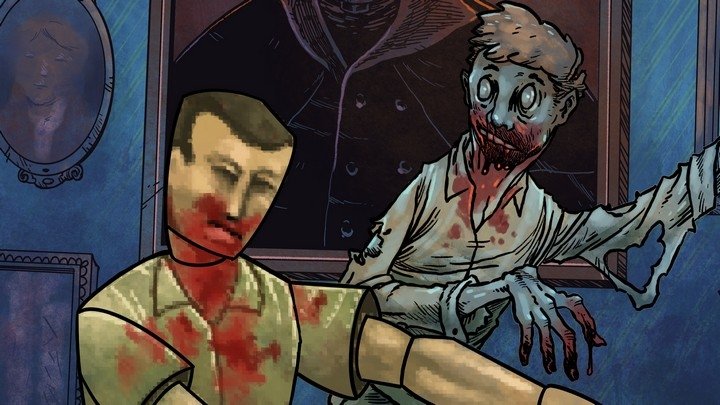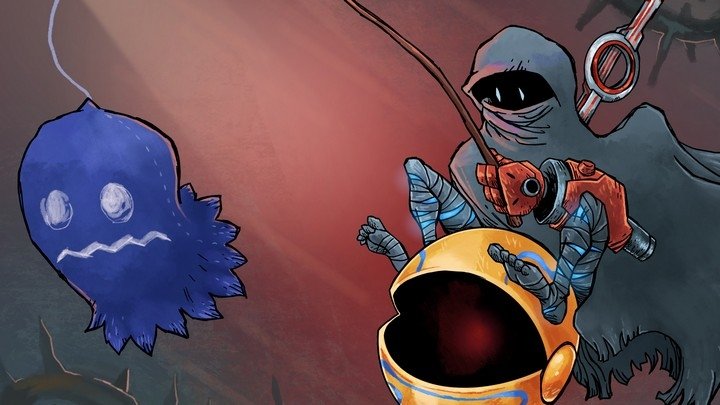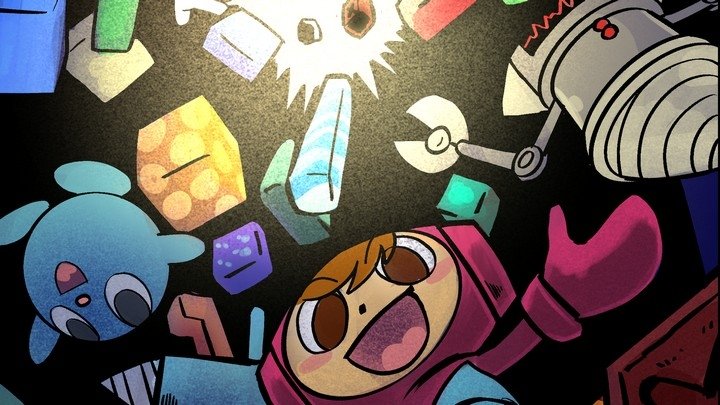Never Stop Recallin'
Nostalgia is a dangerous trap but it's not a crime to acknowledge the past
I recently watched a video about Blade Runner 2049 which posited that the 2017 sequel to a 1982 cult sci-fi film was itself commenting on the nature of nostalgia while simultaneously banking on nostalgia to draw an audience. It's an interesting take, one I would not have picked up on because I do not associate nostalgia with Blade Runner, a film I did not see until years after it had already become a "classic."
In that same vein, I've been playing Never Stop Sneakin' on Nintendo Switch (also available on Steam and mobile devices), an indie game that parodies the Metal Gear Solid series while simultaneously banking on the appeal of a retro stealth game to draw an audience. And once again I am forced to view a current work without any nostalgia for its famous antecedent because I've never played a Metal Gear Solid game.
We here at Retronauts spend a lot of our time talking about the past, so examining nostalgia should go hand-in-hand with our mission. In the above video on Blade Runner 2049, Mikey Neumann describes nostalgia as "addictive" and believes that corporations are exploiting consumers' love of the past to sell them sequels, reboots, remakes, and other derivative works. For video games, cashing in on nostalgia is even simpler because our digital heroes, unlike our favorite stars of television or cinema, never age.
Compare Mario to another mega-star from 1980: Burt Reynolds. They both look good with a mustache and both know how to handle themselves behind the wheel, but while Mario approaches his fourth decade with no signs of slowing down, Burt Reynolds must make movies that reflect the passage of time. Are both Super Mario Odyssey and The Last Movie Star calculated to profit from consumer nostalgia? Of course, but the difference is that a 2017 Mario game holds instant appeal to my kids, whereas a 2017 Burt Reynolds movie wouldn't make much sense to them.
There's also the fact that video games have always relied on iteration in a way that movie sequels or television sequels cannot. Mega Man debuted in 1987 and had dozens of adventures and spinoffs inside of a decade with little variation. Contrast that with 1987's Lethal Weapon, a hugely popular movie series which managed just three sequels in eleven years before going dormant.
However, there's a way that nostalgia impacts video games that is less prevalent in Hollywood, and that's small teams creating original games that channel the look and feel of old games, borrowing nostalgia for their own needs. It's how dozens of developers can promote their 2018 software as a "Metroidvania" despite having no rights to either Metroid or Castlevania. In some cases, these new-old games are so-called "spiritual sequels" made by experienced developers who are attempting to recapture the feel of games they themselves made decades ago (Video game characters may not age, but video game developers do). How many filmmakers are out there making 1970s Blaxploitation or 1980s comedies in the 21st century? Not nearly enough, if you ask me.

Which brings us back to Never Stop Sneakin', a game that very much wants players to remember Metal Gear Solid and the 1990s. There's 3D graphics but the characters have few polygons and their faces are unmoving textures. Most conversations take place within text boxes as two character portraits stare at each other. Enemy characters have a visible cone depicting their exact visual range on screen. And then there's the theme song that's equal parts James Bond and "Snake Eater."
I'm no stranger to Metal Gear parodies (the incredible Saints Row 4 had an entire tactical stealth sequence that mocked the genre relentlessly) but even without first-hand experience I found Never Stop Sneakin' to be a great time. The controls are pure simplicity: you move your character with the stick or by touching the screen and combat is situational and automatic. If you get close to an enemy, you slice them with a sword. If you are spotted, you use a gun or grenade from your limited inventory to kill enemies from afar. There are power-ups and boss fights and a ludicrous story but that's all icing on the essential gameplay loop of infiltrations into randomly-generated bases and sneakin' past enemies.
Whatever nostalgic appeal Never Stop Sneakin' might have for Metal Gear Solid fans, for me the appeal is kinetic. My character moves quickly, looks cool, and a score multiplier that depletes over time rewards me for hurrying in-between enemy kills. Automatic combat means I run first and ask questions never, as guards only injure me if I happen to run out of ammo. It's "fast stealth," a term I first heard on a 1up.com podcast describing Batman: Arkham Asylum* but it's perfect here as well.
I enjoyed Never Stop Sneakin' as a stranger to Metal Gear Solid just as I enjoyed Blade Runner 2049 as a stranger to Blade Runner. I say this not to proclaim myself above nostalgia (nothing could be further from the truth) but to praise these two creations as building on the past instead of simply wallowing in the past. In both cases the newer versions exist sufficiently on their own and entertain and stand out in such a way that rubes such as myself can have fun without doing hours of homework in advance. Pure nostalgia might be toxic, but I'm always interested in creative, fresh takes on established genres.
*By the way, Batman: Arkham Asylum turns 10 in 2019 at which time it will officially become retro. Hope you're ready for all the incoming retrospectives, because I'm ready to write one!




